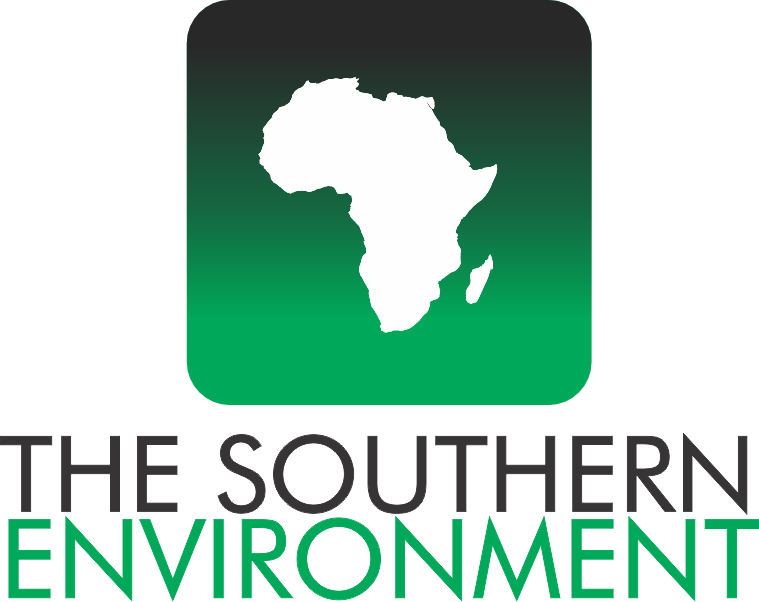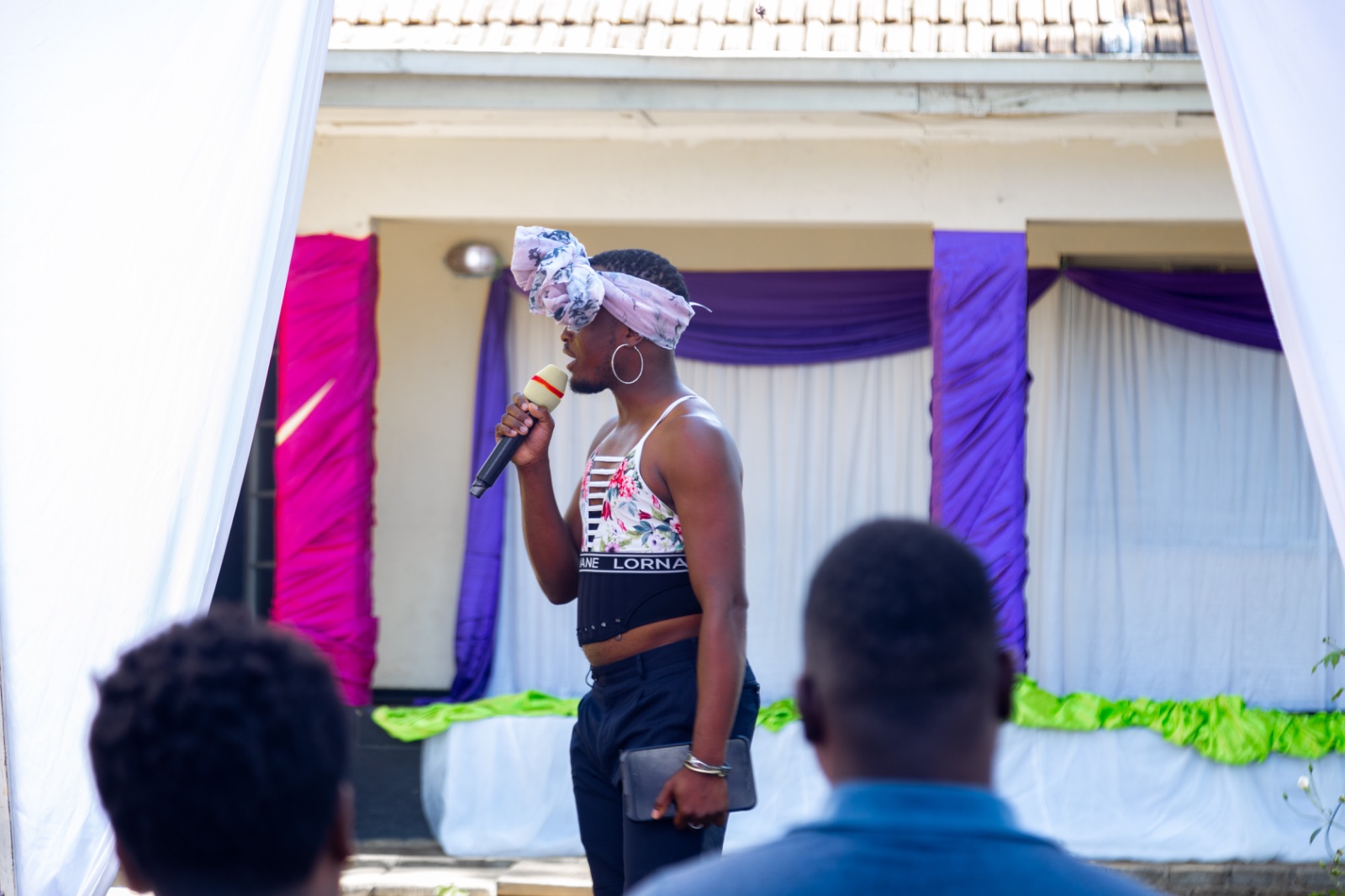Climate change conversations are gaining momentum in most Africa communities, from extreme weather events to rising food insecurity cases but not everyone is included despite, how much the gospel of inclusion and climate justice is being preached.
The discussions often overlook one critical demographic, the (Lesbian, Gay, Bisexual, Transsexual, Intersexual) LGBTQI community, a group which is facing a dual burden climate vulnerability compounded by deep seated social stigma and systemic exclusion.
In Zimbabwe, the LGBTQI community has long been marginalized, and in some cases, even blamed for the effects of climate change. In rural areas, where religious beliefs dominate social norms, queer individuals are often scapegoated when natural disasters strike. This highlighting the deep-seated misconceptions and prejudices they face by many Christian believers.
“Whenever disasters strike like the 2024 El Nino drought, they blame me and make reference to the biblical destruction of Sodom and Gomora. I am labeled an abomination unworthy of belonging within the Christian faith,” says a young lesbian living in Harare who commented on conditions of anonymity. She questioned where she can turn to for refuge? The only way I can do to survive this is to deny in front of my community about who I am”
Zimbabwe remains among the most hostile nations for individuals identifying as gay, lesbian, or transgender. In 2006, an amendment to the criminal code broadened the definition of sodomy to include actions deemed “indecent” by a reasonable person—potentially even gestures as simple as two men holding hands or embracing. These acts can carry lengthy prison sentences.
While Zimbabwe’s Criminal Law (Codification and Reform) Act targets specific sexual behaviors, it does not explicitly criminalize LGBTI identities. Nevertheless, widespread public opinion wrongly equates homosexuality with criminal activity. This misconception is further fueled by an ill-informed media and frequent anti-LGBTI remarks from political leaders, fostering a deeply discriminatory and misinformed societal climate.
Human rights lawyer, Obey Shava remembers very well the ordeal he faced when he represented the LGBTQI members in courts of law after former Zimbabwean president Robert Mugabe called them animals in 2012. In his actual words, Mugabe said, “…they are worse than pigs…” and condemned them in the community.
Presenting my case before the magistrate in Mbare, I argued that the court’s decisions should stand independent of political interference—yet that’s precisely when the storm unleashed,” Shava recalls.
He describes how a furious mob formed, chanting for his removal, forcing police officers to usher him through a back entrance for protection. “They had to sneak me out the back door because the crowd wanted my head,” he says, shaken by the ordeal.
A deep dive into 2012 reveals that President Mugabe continued weaponizing anti-LGBTI sentiment as a political tool. In May 24–25, speaking at a women’s summit attended by UN High Commissioner Navi Pillay, he argued that legalizing same-sex marriage would undermine women’s rights and threaten humanity, stating: “When a man says he wants to get married to a man, we in Zimbabwe don’t accept it… We can’t talk of women’s rights anymore once we go in that direction”
He repeatedly described homosexuality as “Inhuman” Worse than “dogs and pigs” August 2012: He forcibly blocked GALZ’s participation in constitutional talks, declaring that LGBTI protections would not be tolerated and endorsing police raids on their offices. In July 2012, at a ZANU–PF rally, he called for the arrest of gay and lesbian individuals who did not conceive children: “I should like to shut them up in some room…and if they don’t [get pregnant], then it’s jail”
These inflammatory statements coincided with a surge in police raids against LGBTI events,like the August 11 book-launch raid on GALZ that saw 44 people detained.
Zimbabwe is not alone in this stance. According to Amnesty International, same-sex relations are illegal in 35 African nations. In countries such as Mauritania and Sudan, and in parts of Somalia and Nigeria, the death penalty may even be imposed for such offenses.
But amidst the hardship, some LGBTQI individuals are turning to innovative and community-based solutions to build resilience and change perceptions. One such initiative is run by Mothers Haven Trust, an organization that supports lesbian, bisexual, transgender, and queer women. Through farming projects, they are not only ensuring food security for themselves and their families but also slowly mending relationships with their communities, shifting perceptions of LGBTQ people from outcasts to contributors.
Ignored in Policy and Media
According to Ncube Njabulo from the Zimbabwe Network for Empowerment of Facilitators (ZINEF), the LGBTQ1 community continues to be one of the most neglected groups when it comes to climate planning, media coverage, and policy discourse.
“The LGBTQI community is one of the critical group of citizens largely ignored and marginal a large section of the citizenry owing to lack of understanding of its needs and aspirations. Because they are unique, the marginalized only by the media by policy makers which, to all intents and purposes has never bothered to check the impact of climate on this community which is affected just like any other communities of Zimbabwe,” said Ncube.
ZINEF has made efforts to bridge this gap by equipping journalists with the knowledge and sensitivity needed to report on LGBTQ issues.
“Zinef has had deliberate media programmes to capacity journalists to understand the LGBTQI as well as facilitate dialogue and interactions. The idea is intended for the media to have an appreciation of the needs and aspirations of this community which is largely ostracized in a country where the constitution recognises their rights,” he said.
He emphasizes that while same-sex marriage is prohibited, the broader Bill of Rights in Zimbabwe’s constitution guarantees freedoms of expression, association, and assembly for all citizens.
“What is lost by the generality is that the country’s constitution guarantees all citizens the right of assembly, association, freedom of expression, and among rights. The Bill of Rights in Zimbabwe constitution is instructive. The constitution only prohibits same sex marriages.”
The Cost of Exclusion
The consequences of exclusion are far-reaching. LGBTQI individuals are often at higher risk of poverty, homelessness, and food insecurity, vulnerabilities that are only worsened by climate change. These risks are even more severe in countries where LGBTQI identities are criminalized or heavily stigmatized.
“The community is not immune to the vagaries of climate change just like most Zimbabwe. It is unfortunate the media, policymakers and other influential members of the larger Zimbabwe community view the community in negative and disparaging views.
“More advocacy work is needed in desperate attempts to change the media narrative around the LGBTQI community. ZINEF would be glad to fundraising to capacitating the media more on understanding the community and specifically reference their impact of climate change on it. A baseline study would suffice and it could possibly be a first by a professional advocacy and lobby media group,” added Ncube.
Indeed, research and data specific to how climate change affects LGBTQI populations in Africa are virtually nonexistent. Without this information, policymakers and donors are flying blind and LGBTQI communities are left without the safety nets they need.
Despite all the hardships, organizations like Youth Gate Zimbabwe are now actively working to close that gap. Blessing Nhidza, Monitoring, Evaluation, Research and Learning (MERL) officer, emphasized the need for inclusive climate policies.
“There is exclusion of LGBTIQI communities in the climate change mitigation and response plans and programs. LGBTIQI communities already face discrimination as a result of criminalisation. Also for a comprehensive climate change mitigation there is need for wide and inclusive consultations.”
He pointed out that even when climate responses exist, LGBTQI individuals are often left out of social protection schemes.
“There is also limited access to climate change related safety nets for the LGBTIQI community. As an LGBTIQI we also have our unique needs, access to essential services is limited when climate induced disasters hit.”
To address these gaps, his organization has taken bold steps, “As an organization, we educate LGBTIQ the communities about CC and its effects and we also integrate CC into our existing health related programs so that we ensure that we build health systems that address the needs of all communities including the LGBTIQ community.”
However, funding remains a major obstacle. “There are limited funding opportunities for climate related programs targeting LGBTIQI communities hence we have to mainstream climate change in our health programs.”
Despite this, Youth Gate Zimbabwe has made significant strides in ensuring representation in policy processes, “We actively supported LGBTIQ communities to participate in the development of the City of Harare, Environment and Climate Policy Formulation Stakeholder Meetings we are to see if our views were included and are reflected in the upcoming Policy.”
“We have been supporting the Ministry of Health and Child Care (MoHCC) and National Aids Council (NAC) in implementing the national key Populations programs through supporting the roll-out of the program, development of guidelines on offering stigma free services and ensuring that our health systems are resilient to climate shocks.”
Meanwhile, Nhidza made a call to action saying that the intersection of climate change and LGBTQI rights in Africa is complex, under explored, and deeply important. To build truly inclusive and resilient societies, it is vital that governments, development partners, and media practitioners recognize the unique vulnerabilities and contributions of the LGBTQI community in the climate crisis.







